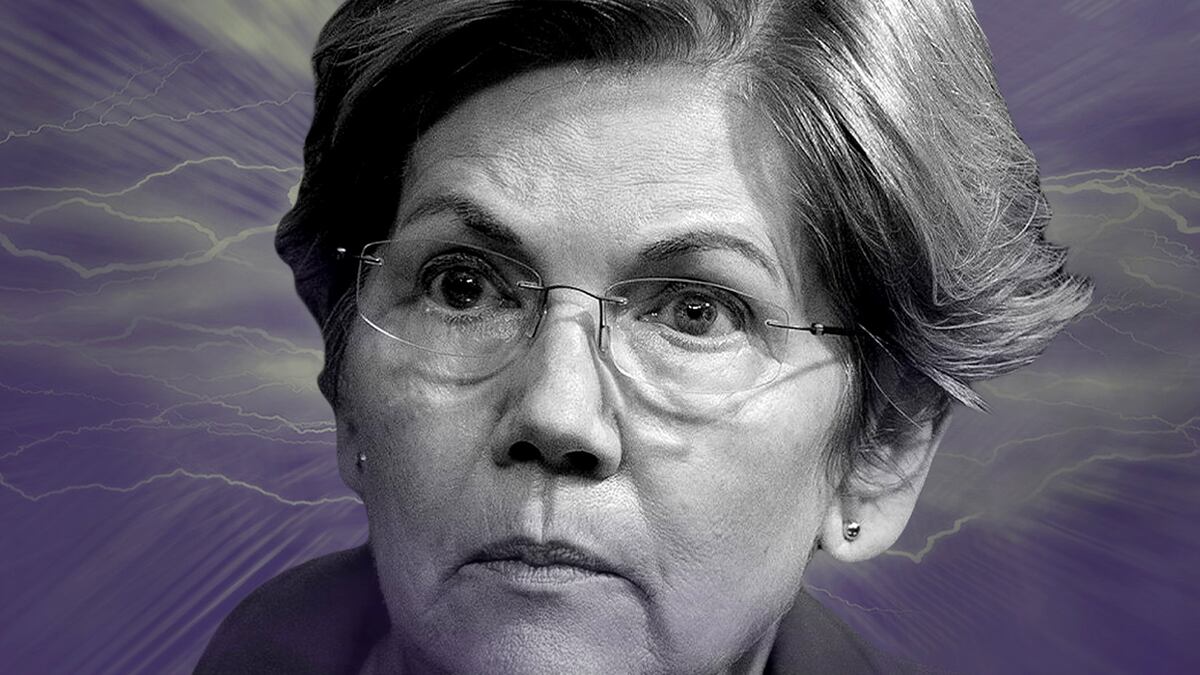- Elizabeth Warren using Hamas’ crypto funding as a cudgel is only the latest setback for the industry.
- The trial against Sam Bankman-Fried and Republican infighting have also halted the process of providing meaningful crypto rules.
Contrary to popular belief, many crypto converts want to reel in the unruly industry with well-considered regulation.
Not only would that even the playing field, it would also provide the industry with much-needed legitimacy after an avalanche of scandals has marred its reputation.
Crypto firms like Coinbase and Binance have ramped up their lobbying of US lawmakers this year to get laws that suit them passed.
Just two months ago, it looked like they could get their wish.
Two draft bills passed the committee stage and were due to hit the floor of one chamber of Congress, while a smattering of other proposals waited in the wings.
However, the industry may have to wait for a long time to see meaningful US regulation.
The trial against disgraced FTX founder Sam Bankman-Fried, Republican infighting, and allegations that Hamas used cryptocurrencies to fuel the attack on Israel threaten to grind the legislative process to a halt.
Anti-crypto firebrand Senator Elizabeth Warren and over 100 other US lawmakers have called upon the Biden administration in an open letter to clamp down on “crypto-financed terrorism.”
“It’s pretty clear that the combination of the SBF trial and the Hamas crypto allegations have put some wind in the sails of the anti-crypto crowd in Washington,” regulation expert Sean Tuffy told DL News.
“In particular the Warren wing has really seized on the Hamas allegations to rally support for a tough crypto [anti-money laundering] law.”
For an industry reeling from the scandals of last year — the collapse of Bankman-Fried’s $32 billion crypto empire in a flurry of fraud allegations in particular — and the regulatory crackdown spearheaded by the US Securities and Exchange Commission’s chair Gary Gensler, these delays are a huge setback.
The Wall Street Journal’s report has been questioned by public figures, such as Castle Island Ventures partner Nic Carter and Swan Bitcoin’s lead market analyst Sam Callahan, who have accused the publication of exaggerating the numbers.
Warren’s driving force
Warren’s latest power play is unsurprising — her driving force has always been consumer protection.
To her, crypto represents more risks to middle class investors, like the credit card companies and predatory mortgage lenders she has targeted over her career.
Warren has also blamed crypto for fuelling the fentanyl crisis.
Her view has of late been bolstered by high-profile scandals at crypto exchanges and lenders like FTX and Celsius.
US lawmakers also fear that crypto stolen in large heists like the Axie Infinity hack are funding the nuclear programme of North Korea.
Warren’s focus has never been on cranking out legislation.
As she said in 2011, “I don’t want to go to Washington to be a cosponsor of some bland little bill nobody cares about. I don’t want to go to Washington to get my name on something that makes small change at the margin.”
But Warren has promoted her bill to crack down on money-laundering and sanctions abuses perpetrated with crypto.
The Democratic senator is not afraid to reach across the aisle and make common cause with arch-conservatives such as Kansas Republican Roger Marshall and Donald Trump ally Lindsey Graham, who are co-sponsors of the bill.
She and Marshall struggled at first to find support for the bill, but top Democratic Senators recently threw their weight behind it.
Speaker battle hits crypto’s chances
As current events bolster Warren’s cause, Congressional brinkmanship may be hurting crypto’s hopes too. Two of the industry’s most stalwart allies — Republicans Patrick McHenry and Tom Emmer — have been involved in the ongoing battle for the speakership that has shed light on divides in their party.
Following Kevin McCarthy losing the Speaker of the House of Representatives role, it’s been anyone’s guess of who will take up the job full-time.
At the moment, North Carolina Republican Patrick McHenry has temporarily stepped into the role.
On the face of it, that looks like good news for the crypto industry. McHenry has made no secret of his support of the industry and has supported crypto-friendly bills in the past.
However, him taking on the Speaker role while his party squabbles over who McCarthy’s replacement should be has sidelined him from his daytime job chairing the House Financial Services Committee.
On Tuesday, Tom Emmer was chosen by House Republicans to be their nominee for speaker, only to withdraw his bid a few hours later amid a backlash from right-wing Republicans and former president Donald Trump.
Again, that prospect may have sounded like great news for the crypto community.
Emmer is a long-time supporter of the industry — a fact that has earned him the sobriquet the Crypto King of Congress.
He is also a well-known recipient of crypto industry donations. Last year, the Washington Post quoted OpenSecrets data showing that Emmer personally collected $78,000 in donations from the crypto industry in 2022.
On the other hand, Emmer becoming Speaker may have also been bad news for the industry.
“If Emmer is successful it may actually be bad for any potential crypto bill because he’ll no longer be involved in the Financial Services committee or as actively involved in negotiating the bill,” Tuffy said, before news of Emmer’s withdrawal from the race came out.
“However, the real issue is that any House crypto [bill] still needs to get by the Senate. With the Warren wing’s anti-crypto position gaining strength, that just seems unlikely. Ultimately, it seems unlikely we’ll see US crypto legislation this year. So, all eyes and pressure will remain on the regulators,” Tuffy added.
UPDATE: Updated story with news of Tom Emmer’s withdrawal from the House Speaker race.
Joanna Wright is DL News’ London-based regulation correspondent. Eric Johansson is DL News’ London-based news editor. Do you have a tip? Let us know at joanna@dlnews.com and eric@dlnews.com.
